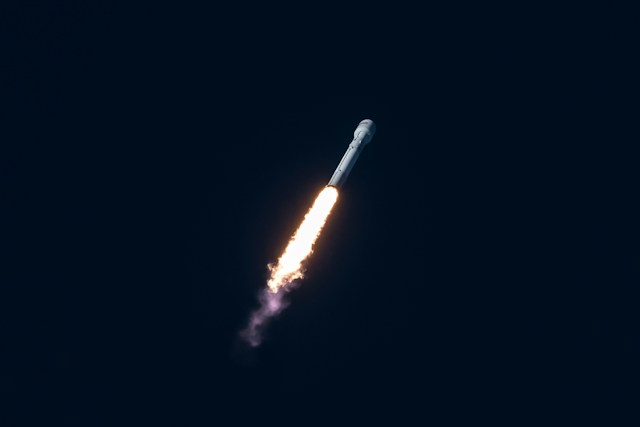On November 2, 2023, the Chinese company iSpace successfully tested the Hyperbola-2 rocket. With this hop test and precise landing, the company proved the reusability of the rocket and its ability for vertical takeoff and landing. Moreover, it presents a significant step toward lowering the high costs of launches over time.
The launch took place at the Jiuquan Satellite Launch Center, where the hopper reached 178 meters (584 ft) in a total flight time of 51 seconds and a landing accuracy of 1.68 meters (5.5 ft). It is powered by a Focus-1 engine, while the dimensions equal 17 meters (55.8 ft) in length and 3.35 meters (11 ft) in diameter.
Previously in 2019, iSpace also launched a smaller rocket called Hyperbola-1. Currently, the company is focusing on the next planned launch vehicle – the Hyperbola-3. This would present a significantly larger and more powerful rocket with the ability to lift 8.5 tons into the low Earth orbit (LEO) if reused and 13 tons if expended. Furthermore, it will use liquid oxygen and methane to power the engines. Testing plans are set for 2025 and 2026.
In its official WeChat account according to the South China Morning Post, iSpace said that the test “provided strong technical support for developing the medium/large-scale reusable launch vehicle Hyperbola-3 we are currently working on”, also adding that “The success marked a breakthrough for China’s commercial space sector … It also sounded the charge for China’s space industry to catch up with the world’s most advanced levels in reusable rocket technologies.”
iSpace (also known as Beijing Interstellar Glory Space Technology Ltd.) is a private Chinese space technology development and launch company. Founded in 2016, the company is headquartered in Beijing and is one of many Chinese space launch companies, meaning that this market is becoming highly competitive. Such other companies include Deep Blue Aerospace, LandSpace, and Galactic Energy, among others.







